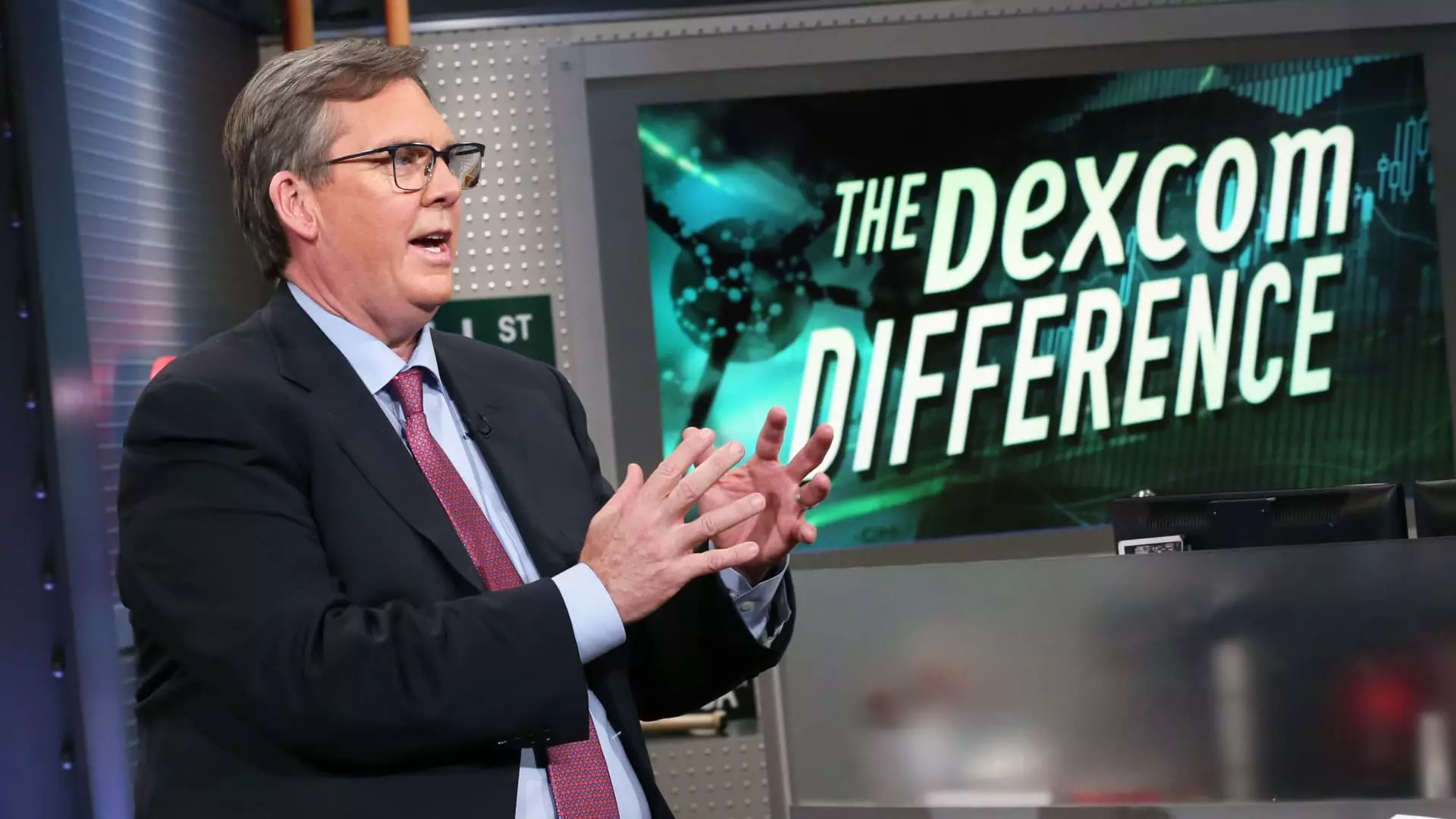Dexcom, a leading player in the diabetes management sector, experienced a significant downturn in its stock value, dropping by 9% in after-hours trading following the release of its third-quarter financial results. Though the company surpassed analysts’ expectations in terms of earnings, the overall report highlighted troubling trends, particularly a decline in U.S. revenue when compared to the previous year. The company reported adjusted earnings of 45 cents per share, which outpaced the 43 cents anticipated by analysts, but the mixed results left many investors and analysts on edge.
In the third quarter, Dexcom achieved a total revenue of $994 million, reflecting a modest 2% increase from the $975 million reported in the same quarter of the previous year. However, a closer examination reveals a concerning trend: the company’s revenue from the U.S. market fell by 2%, dropping from $713.6 million in the prior year to an unsettling $698.2 million. This downward shift raises questions about the company’s ability to sustain its growth trajectory, especially in its domestic market, which has historically been a stronghold for Dexcom.
Despite facing obstacles, Dexcom managed to improve its net income to $134.6 million, equating to 34 cents per share compared to $120.7 million or 29 cents per share in the same period last year. This profitability is commendable, yet it is overshadowed by the company’s challenges in maintaining revenue growth. CEO Kevin Sayer acknowledged these issues, attributing them to a restructuring effort within the sales team, a reduction in the acquisition of new customers, and lower average revenue per user.
For the fiscal year, Dexcom has maintained its guidance, projecting total revenue between $4 billion and $4.05 billion. However, this is a lowered forecast from an original estimate of $4.20 billion to $4.35 billion previously established earlier in the year. Investors are likely cautious, especially following a troubling 40% drop in stock value after the company’s second-quarter results were unveiled. The adjustments in sales strategy and a recent focus on introducing innovative products, like Stelo—an over-the-counter continuous glucose monitoring system—may be necessary if Dexcom hopes to regain investor confidence.
In a notable management shift, Teri Lawver, the chief commercial officer, is set to retire at the end of the year. As Lawver transitions, Sayer will temporarily lead the commercial organization as Dexcom seeks her replacement. This transition period comes at a critical time as the company maneuvers through its sales restructuring and adapts to market demands.
Overall, Dexcom’s third-quarter performance presents a blend of resilience and uncertainty. While the financial metrics exhibit robust profitability, underlying issues related to sales effectiveness and market penetration necessitate immediate attention. Investors will be closely watching how the company addresses these challenges moving forward, especially in light of strategic changes and leadership transitions within the organization.

Leave a Reply